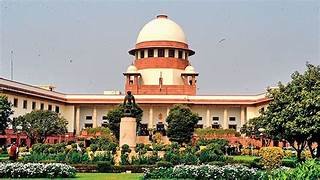The recent directive from the Supreme Court instructing its registry to refrain from including details regarding the caste or religion of litigants in case files has ignited considerable debate and attracted considerable attention nationwide. This move marks a significant departure from the conventional practice within the judicial system and raises important questions about transparency, inclusivity, and the role of identity in legal proceedings.
The decision comes in response to a plea seeking guidelines to stop the recording of caste and religion in judicial records, arguing that such information is irrelevant to the administration of justice and can perpetuate discrimination and bias. The plea underscores the importance of ensuring equal treatment and dignity for all individuals, regardless of their background or identity.
Critics of the practice of recording caste and religion in case files argue that it reinforces social hierarchies and stereotypes, perpetuating divisions and prejudices within society. They contend that such information serves no legitimate purpose in legal proceedings and may even lead to discriminatory treatment or profiling based on caste or religion.
Moreover, opponents argue that mentioning caste or religion in case files can compromise the privacy and safety of litigants, particularly in sensitive matters such as matrimonial disputes or interfaith relationships. By omitting this information from case records, the Supreme Court seeks to protect the rights and dignity of individuals involved in legal proceedings and promote a more inclusive and impartial justice system.
However, some legal experts caution that while the intent behind the Supreme Court’s directive is laudable, implementation may pose practical challenges. They argue that caste and religion can sometimes be relevant to certain legal matters, such as cases involving issues of discrimination, affirmative action, or personal laws governed by religious customs.
Furthermore, proponents of retaining caste and religion data in case files argue that it can aid in the collection of statistical data for policy formulation and monitoring the effectiveness of social welfare programs targeted at marginalized communities. They contend that erasing this information from judicial records could hinder efforts to address systemic inequalities and ensure equitable access to justice for all.
The Supreme Court’s directive reflects broader efforts to promote transparency, fairness, and impartiality within the judicial system. It underscores the importance of prioritizing individual rights and dignity while upholding the principles of justice and equality before the law.
Going forward, executing this directive will demand thoughtful examination of its ramifications for legal proceedings, alongside continued discussion and collaboration with stakeholders to tackle apprehensions and uphold transparency, inclusivity, and fairness in the dispensation of justice.









